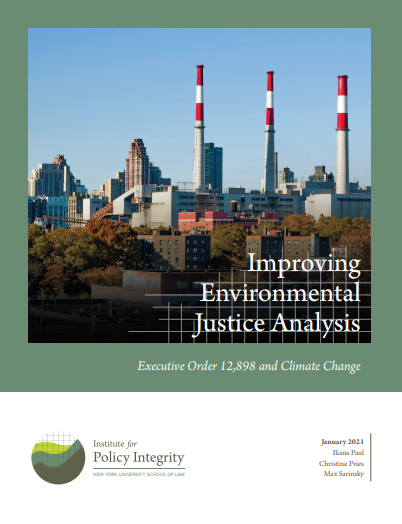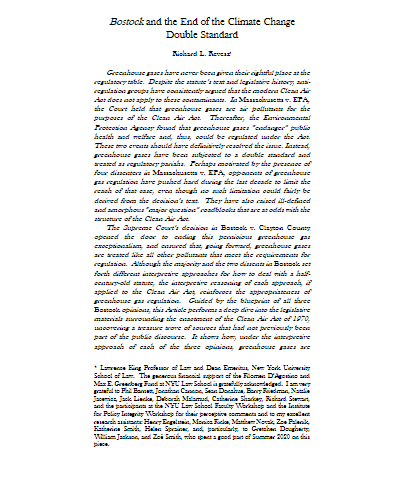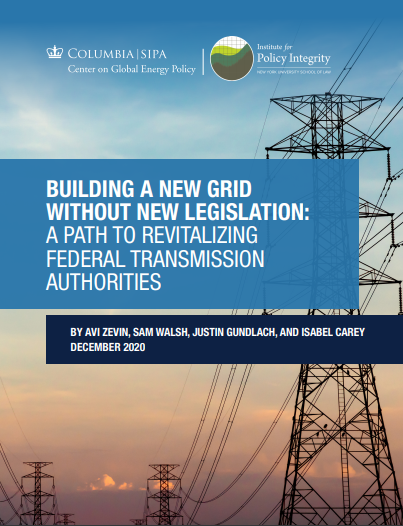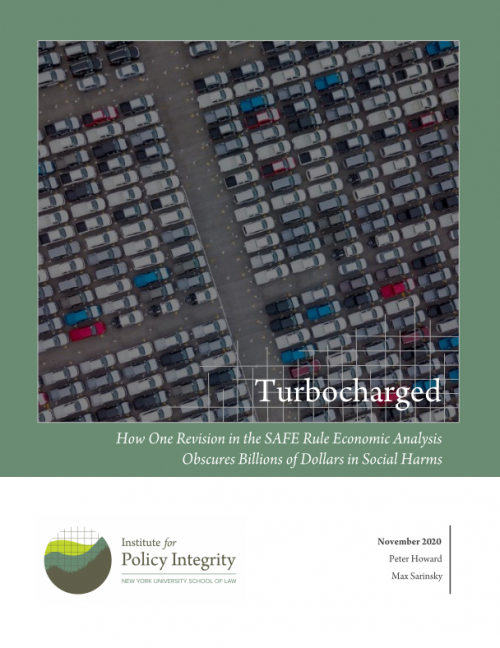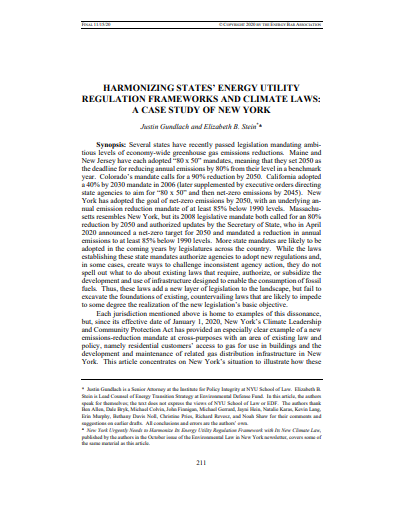-
Improving Environmental Justice Analysis
Executive Order 12,898 and Climate Change
Distributional and equity concerns have typically received short shrift in federal administrative decisionmaking, particularly with regard to actions with climate-change impacts. This report aims to aid advocates and policymakers in meaningfully addressing the disparate climate impacts of federal actions.
-
Bostock and the End of the Climate Change Double Standard
Guided by the blueprint of all three Bostock opinions, this article, published in the Columbia Journal of Environmental Law, performs a deep dive into the legislative materials surrounding the enactment of the Clean Air Act of 1970, uncovering a treasure trove of sources that had not previously been part of the public discourse. It shows how, under the interpretive approach of each of the three opinions, greenhouse gases are unquestionably pollutants for the purposes of the Clean Air Act. Because the approaches in the majority and dissents in Bostock—and thus a majority of the current Court—all point in the same direction, the era of greenhouse gas exceptionalism should now be over.
-
Building a New Grid Without New Legislation
A Path to Revitalizing Federal Transmission Authorities
In the absence of legislation, critical long-distance transmission can be developed by applying existing federal legal authorities. A number of important regulatory and commercial measures have been proposed, including streamlining transmission planning, upgrading existing transmission system components, putting transmission lines underground, and using existing rights-of-way from highways and railroads. Even if these solutions are adopted, however, state siting requirements may prove an important obstacle to developing an efficient, national transmission grid. So, this paper examines legal authorities already available to the Department of Energy and the Federal Energy Regulatory Commission to develop the interstate transmission capacity crucial to the energy transition.
-
Turbocharged
How One Revision in the SAFE Rule Economic Analysis Obscures Billions of Dollars in Social Harms
This report is part of a series that documents how the assumptions underlying The Safer Affordable Fuel Efficient (SAFE) Vehicles Final Rule for Model Years 2021–2026 Passenger Cars and Light Trucks are skewed to make the rule look less harmful than it actually is. In this report, we focus on the rule’s estimate of vehicle sale price elasticity, which substantially inflates the rollback’s effect on new vehicle purchases.
-
Harmonizing States’ Energy Utility Regulation Frameworks and Climate Laws
A Case Study of New York
Unless the institutional framework and laws pertaining to fossil fuels are modified appropriately, decarbonization efforts will likely be stymied by confusion and related opportunities for opposition. This article, published in the Energy Law Journal, aims to start a wider conversation about the process of conforming existing energy law with novel, climate-oriented legislation. We concentrate on New York’s situation to illustrate how these tensions can manifest and what might be done to address them.
Viewing all publications in Climate and Energy Policy

